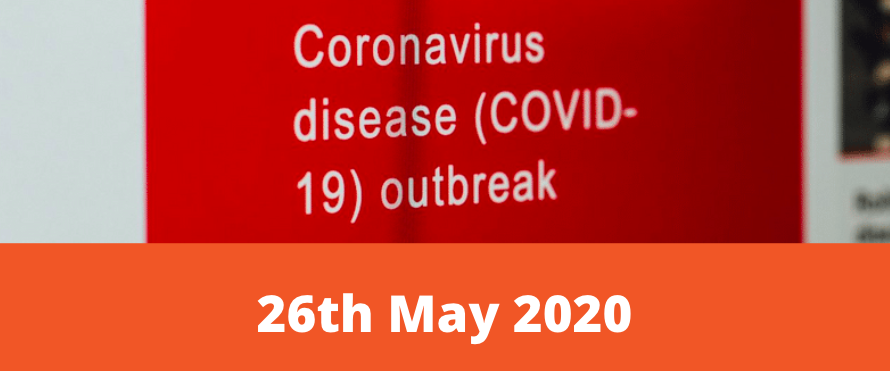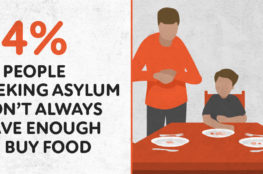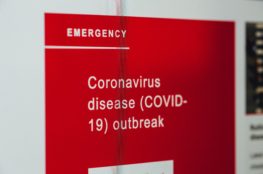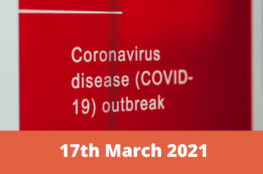Our weekly summary of ongoing advocacy initiatives, interesting surveys and research, government developments and useful resources. Contact us if you’d like to get this update directly into your inbox!
1. Ongoing advocacy initiatives
Campaigners keep up the pressure on the Home Office to raise asylum support rates
Organisations and individuals continue to write to their MPs calling for an urgent uplift to asylum support rates so people seeking asylum are able to keep themselves safe during the COVID-19 pandemic and beyond.
Over 5,350 people have already written to their MPs via Refugee Action’s e-action. We’re also working with organisations and individuals across the UK to raise the issue with their constituency MPs and request meetings to discuss asylum support rates.
We are planning our next steps as we believe there will be an announcement from the UK Government soon.
Want to get more involved in the campaign? Get in touch with Emma Birks ([email protected]).
Labour statement on homelessness
A statement signed by the Labour leader and mayors including Andy Burnham and Sadiq Khan highlights that around 5,000 street homeless have been accommodated during the pandemic, as both the government and local authorities sought to protect them from the virus. The statement asks for the Government to provide clarity on the ‘Everyone In’ policy, including an increase in local authority funding and policy changes for those with no recourse to public funds.The Manchester Evening News report on Labour’s statement is here.
Refugee Women Connect report
RWC has published a report and policy briefing on the effects of C19 on forced migrant survivors of sexual and gender-based violence. Their main recommendations are the need for access to public funds, safe and appropriate reporting mechanisms, mental health services and public services (health, policing) without fear of immigration exposure.
Scottish homelessness charities ‘Everyone home’ post-pandemic plan
Nineteen influential charity sector organisations working to end homelessness have presented a joint plan to the Scottish Government based around three key asks that experts and academics believe could permanently end rough sleeping and destitution in Scotland as the country emerges from the pandemic. This was reported in Scottish Housing News here.
Homeless Link transition plan ‘Everyone in for good’
Homeless Link has published its ‘Everyone in for good’ plan, outlining the urgent national and local action required so that nobody is forced to sleep rough after lockdown.
Lancet Migration report on healthcare access
Lancet Migration has published a policy briefing with recommendations on how the UK Government can ensure migrant and refugee inclusion in the response to Covid-19.
Doctors of the World briefing
Docs not Cops and Medact health surcharge campaign
Docs Not Cops have produced a great video calling for the Immigration Health Surcharge to be scrapped for everyone. You can support by retweeting, and sharing the video through your channels including on Facebook.
Migration Exchange report – Covid-19 Impact Assessment Framework
This report from Migration Exchange develops a framework for understanding the risks associated with COVID-19 for different cohorts of people within the immigration system; and identifies a number of key policy considerations that are pertinent for policymakers, public services and non-governmental organisations.
Legal action to extend nursery care for 2 year olds post-pandemic
In March the UK Government issued guidance confirming that British-born 2 year olds whose parents have NRPF and who are in receipt of section 17 of the Children Act 1989 will be eligible temporarily for a free place in order to help vulnerable children during the restrictions. The Government has not made this change permanent and it remains uncertain how long the extension will last. Matthew Gold & co. solicitors have issued judicial review proceedings challenging the definition of an eligible child under the 2014 Regulations, that aim to lead to the scheme being extended permanently to all 2 year old children who would meet the economic criteria but for their parents’ lack of status.
2. Home Office and Government Developments
Health surcharge exemption for NHS and care workers
Last week we heard the fantastic news that migrant NHS and care workers will be exempt from the health surcharge. The decision represents a sharp u-turn by the Government so congratulations to all who campaigned so effectively for this change.
Bereavement scheme extension
In a further u-turn last week, the Government announced that its bereavement scheme – which had offered indefinite leave to remain to the families of some NHS workers who have died during the Covid-19 pandemic but not those of cleaners, porters, carers and many others – was being extended to all NHS workers.
Government funding for food charities to provide meals for those in need
HCLG committee interim report on rough sleepers
Immigration statistics
Over the 12 months to the end of March 2020, the UK granted protection to 20,339 people – 17% higher than the previous year and similar to levels seen in 2003. This total comprised:
- 12,863 grants of asylum
- 1,482 grants of humanitarian protection
- 1,026 grants of alternative forms of leave following an application for asylum
- 4,968 grants of protection through resettlement schemes
- In the year ending March 2020, there were 35,099 asylum applications (main applicants only) – an increase of 11% on the previous year.
- However, in the first quarter of 2020, the number of asylum applications from main applicants stood at 8,455, a reduction from the previous quarter when the figure was 9,871.
Initial asylum decisions
- In the 12 months ending March 2020, 54% of initial decisions on asylum applications were grants of asylum, humanitarian protection or alternative forms of leave. This is the highest level on record.
Appeals
- In the year ending March 2020, 45% of appeals against asylum decisions were allowed – a 4% increase on the previous year.
Decision times
- Of the 40,830 main applicants waiting for an initial decision on their asylum application at the end of March 2020, 24,530 had been waiting over 6 months (60% of all those waiting).
- For main applicants and dependants, the percentage was slightly higher: 31,516 of 51,906 people waiting for an initial decision had been waiting over 6 months (61%).
Asylum support
At the end of March 2020, 50,898 people were receiving some form of asylum support. This comprised:
- 44,244 people on Section 95 support, of which
- 41,388 (94%) were in receipt of both accommodation and subsistence, and 2,856 (6%) in receipt of subsistence only support.
- 4,077 people on Section 4 support
- 2,577 people on Section 98 support
Refugee resettlement
- In the year ending March 2020, a total of 4,968 people were resettled in the UK through the UK’s Government’s various refugee resettlement programmes. Of these, 4,030 came through the Vulnerable Person Resettlement Scheme (VPRS).
- The total number of people resettled through the VPRS since it was established stood at 20,007 by the end of March 2020.
3. Funding & Resources
Resourcing Racial Justice funding
This new funding pool has opened for small organisations doing frontline work during the Covid-19 crisis. Applications can be for between £5k and £50k and can be from organisations, grassroots or community groups working towards racial justice and/or meeting the immediate needs of those who identify as POC who have been disproportionately affected by COVID-19 and beyond.
Doctors of the World updated guidance
Further to recent changes in the Government and NHS official guidance on COVID-19, Doctors of the World UK has been updating its translated guidance in 60 languages. The updated version includes changes in social distancing rules and the new symptom of coronavirus. Please note the guidance is valid across the UK.
PHE guidance on testing
Public Health England has translated the message that COVID-19 testing and treatment is free of charge, irrespective of immigration status, into 40 languages (including English). Visit the PHE Migrant Health Guide under sub-heading ‘Translated advice and guidance for the public’ to access the full set of languages. These translations are based on the simplified message in English available on the NHS website.
British Red Cross Emergency Contact Cards and tips to stay connected
In order to prevent people losing contact with loved ones during COVID 19, British Red Cross have produced some tips for staying connected and an Emergency Contact Card where people can write the name of the person they would wish to be contacted should they become seriously ill. The prevention messages and Emergency Contact Cards can be downloaded, or people can make their own with paper and pen at home.
Covid 19 infographics
Useful infographics to help summarise key information about Covid-19 in different languages are available here.
Women’s Aid resources
Migrant Help asylum advice guide
4. What we’ve been reading …
- ‘The race to house Britain’s homeless’ charts the path of the ‘Everyone in’ policy and its uncertain future, especially with regard to NRPF.
- This Huffington Post piece highlights how cracks in local authority systems exacerbated by central government policy have left vulnerable homeless migrants fearing for their lives during Covid-19 due to their NRPF status.
- And a good news story from Co Durham where two refugees who fled the war in Syria and settled in County Durham have spent the lockdown manufacturing scrubs and delivering food to vulnerable neighbours.




